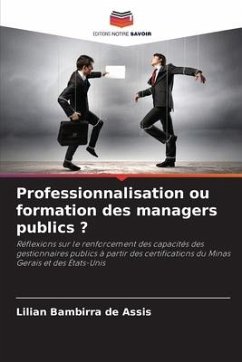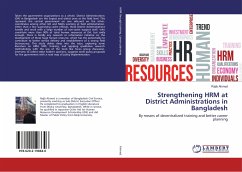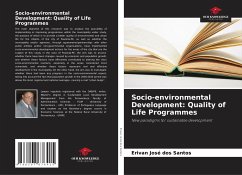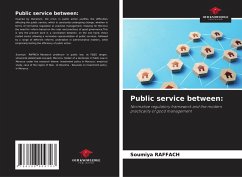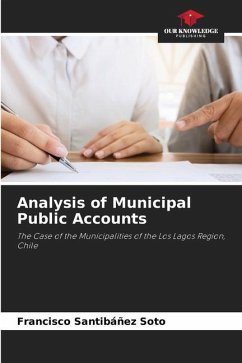
Professionalisation or training of public managers?
Reflections on capacity building for public managers based on certifications from Minas Gerais and the United States
Versandkostenfrei!
Versandfertig in 6-10 Tagen
51,99 €
inkl. MwSt.

PAYBACK Punkte
26 °P sammeln!
The purpose of this book was to contrast the notion of professionalisation with what should be the training of the public manager in the Adornian sense, and to verify whether or not professionalisation leads to social management. One of the great challenges for a more democratic management lies in the professionalisation or training of public servants, who are effectively responsible for generating and maintaining change in a transformative direction. This is exactly what this work proposes to discuss. The research was conducted based on the study of the models of certification of public manag...
The purpose of this book was to contrast the notion of professionalisation with what should be the training of the public manager in the Adornian sense, and to verify whether or not professionalisation leads to social management. One of the great challenges for a more democratic management lies in the professionalisation or training of public servants, who are effectively responsible for generating and maintaining change in a transformative direction. This is exactly what this work proposes to discuss. The research was conducted based on the study of the models of certification of public managers adopted by the state of Minas Gerais since 2006, and the North-American model. Semi-structured interviews were conducted with 28 people connected to certification in Minas Gerais and nine people connected to the process in the United States in five different states, in addition to document analysis. The analysis of the data led to two conclusions: a) there is a process-relational discourse that does not materialize in practice; and b) there is a benchmark in the Brazilian case and in the United States, where the competencies assumed as a starting point are questionable.





